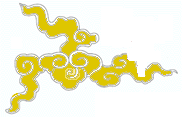
 |
|
Introduction
| History
of Anti-Chinese Laws |
Wong
Kim Ark's Case
| Legal
Issues Today |
Works Consulted
|
|
Wong Kim Ark was born in San Francisco to Chinese parents in 1873. After a visit to China in 1895, he returned to the United States through San Francisco harbor. He was not allowed back in the country, on the grounds that he was not a citizen. Moreover, federal Chinese Exclusion Acts forbade him from entering as an immigrant. Thomas Riordan, a lawyer for the Chinese Consulate in San Francisco and the Chinese Six Companies, filed a writ of habeas corpus on behalf of Wong Kim Ark in federal district court. Citing Ark's birth in the US and relying on the authority of Look Tin Sing, 21 F. 905 (1884), the court ordered him discharged from custody. The decision was immediately appealed to the US Supreme Court.
The Supreme Court
appeal hinged upon the interpretation of the first clause of the Fourteenth
Amendment, which states, "...all persons born or naturalized in the United
States, and subject to the jurisdiction thereof, are citizens of the United
States." The government argued that Wong Kim Ark was not a citizen because
his Chinese parentage made him subject to the emperor of China. In a six to
two decision (Justice McKenna did not participate), Justice Gray wrote the majority
opinion that a child born to two Chinese nationals legally present on American
soil was an American citizen. The case was a landmark legal victory for Asian-Americans
during a period of intense anti-Asian sentiment. For the
text of the entire case, click here: United
States v Wong Kim Ark
All Persons Born...
combines
web based and physical exhibits. It was produced by the
UC
Hastings College of the Law Library,
4th Floor, 200 McAllister Street, San Francisco, CA 94102.
Research and text by Chuck Marcus, Reference Librarian. Research and web design by Beret Aune and Katie Wadell, Library Assistants. Research updates by Alysa Gerard